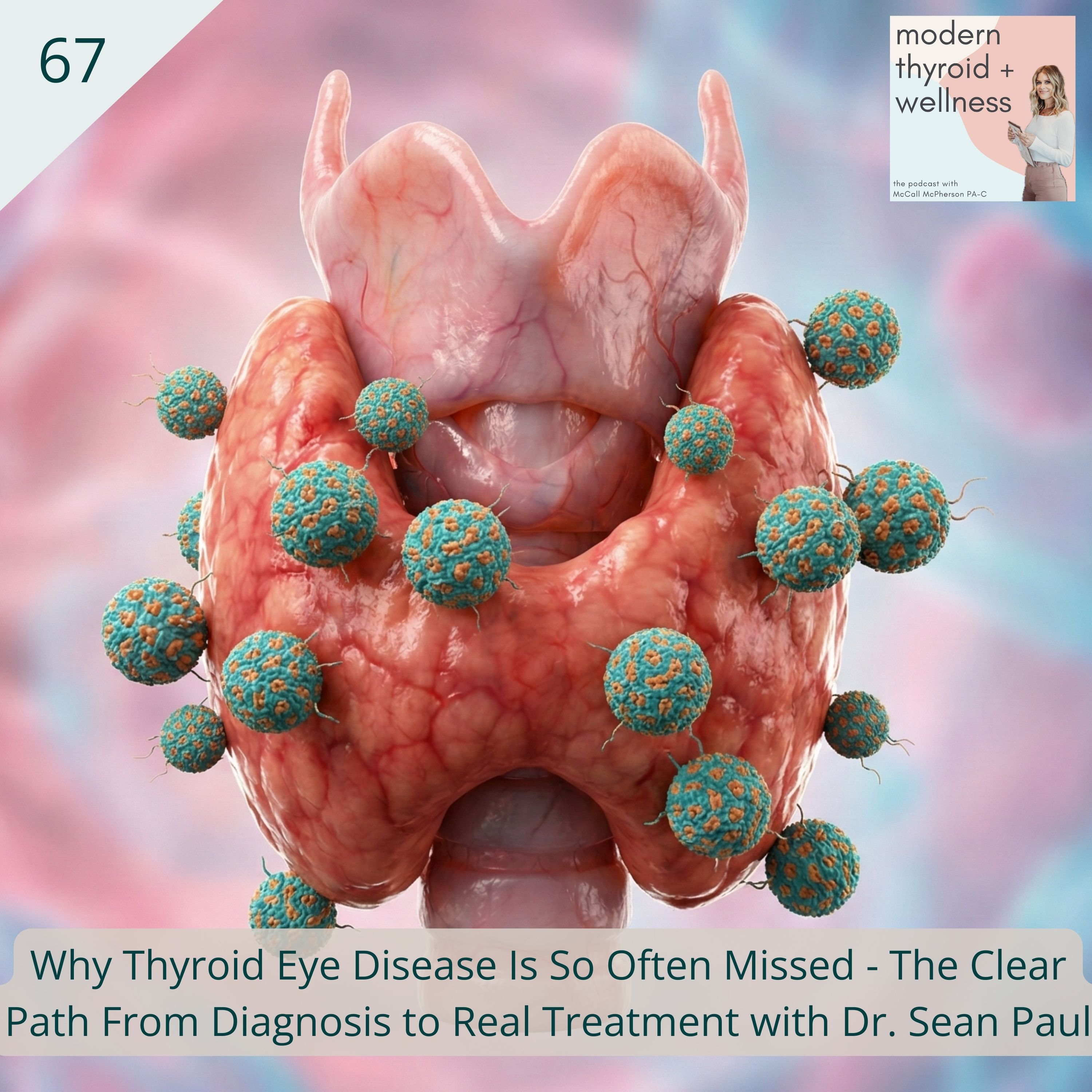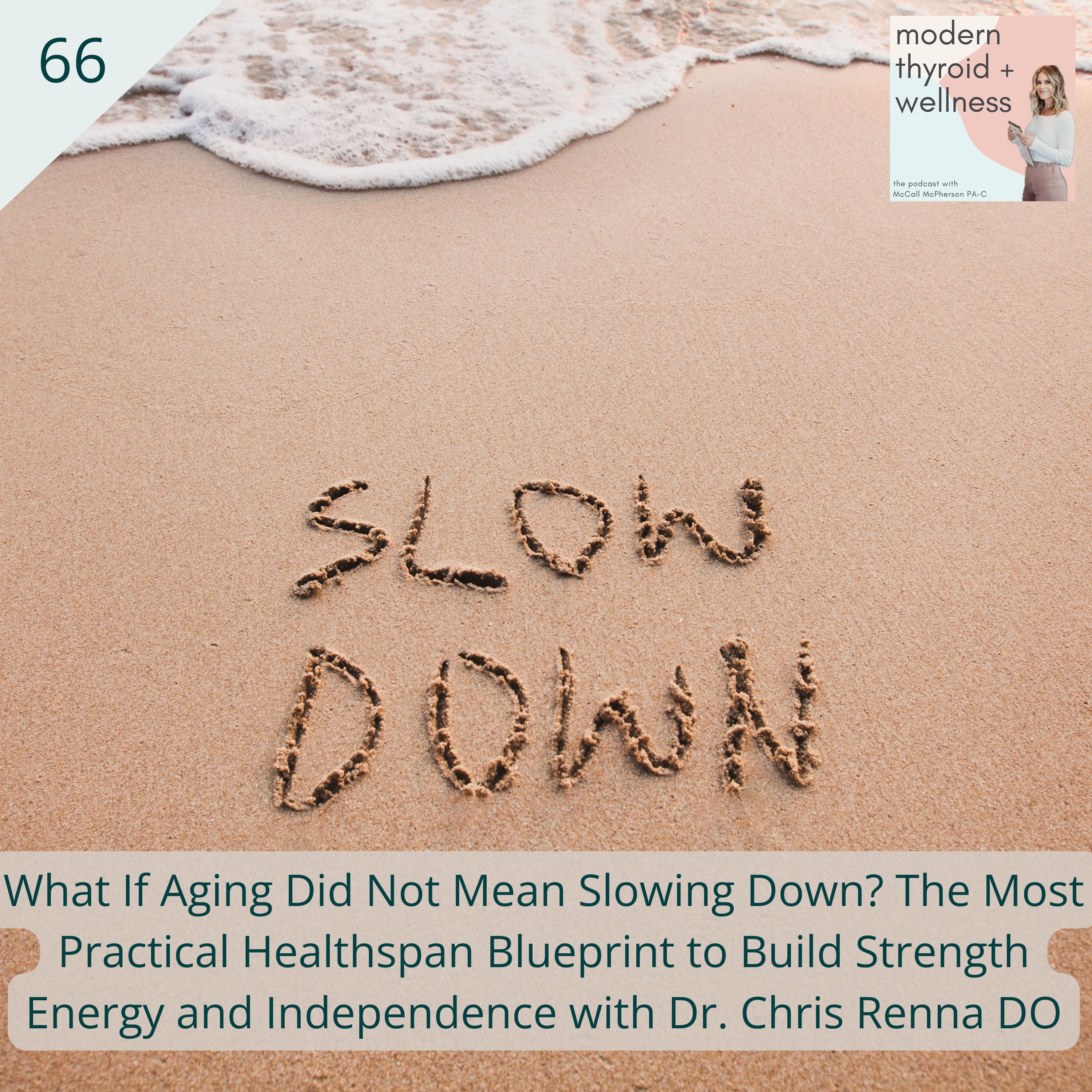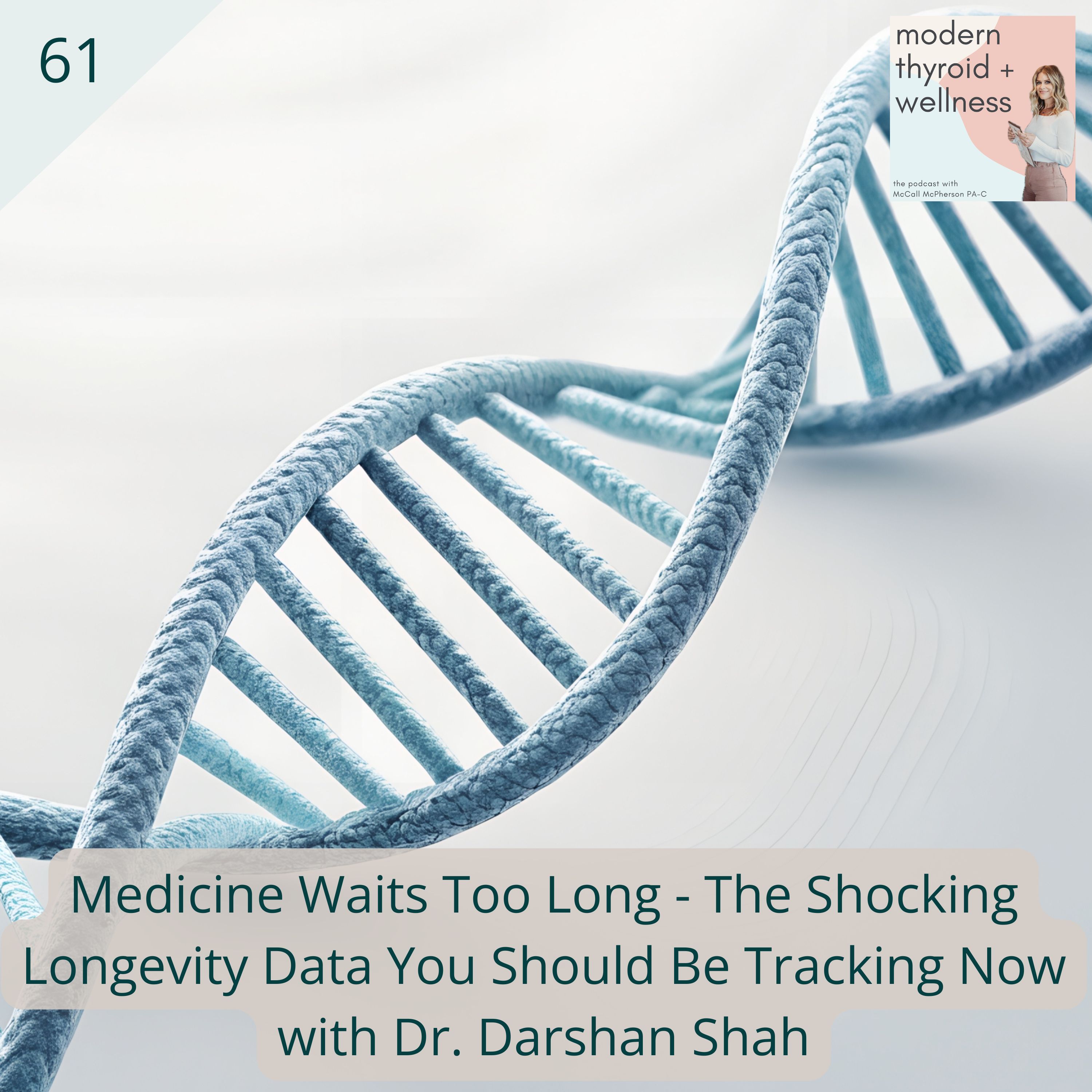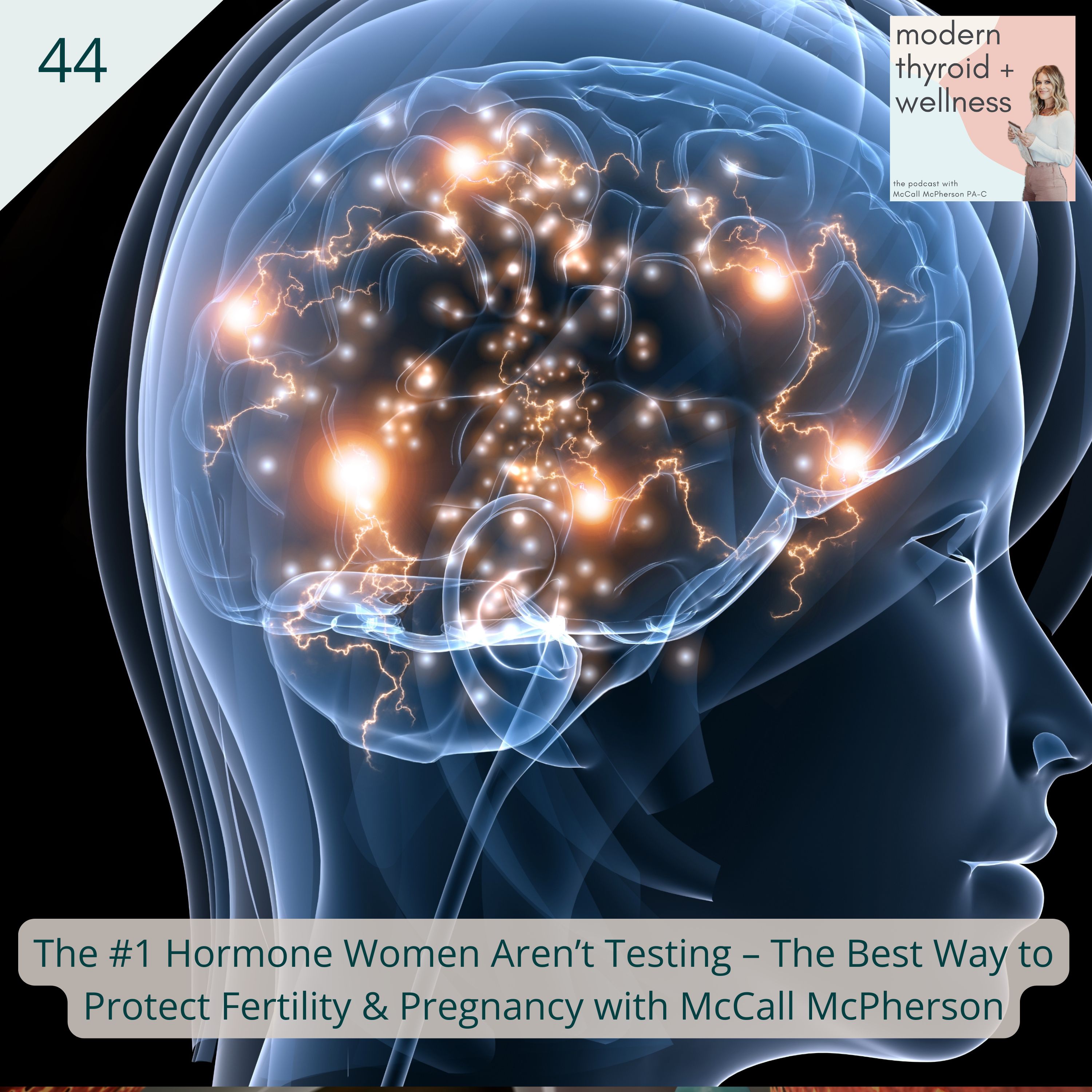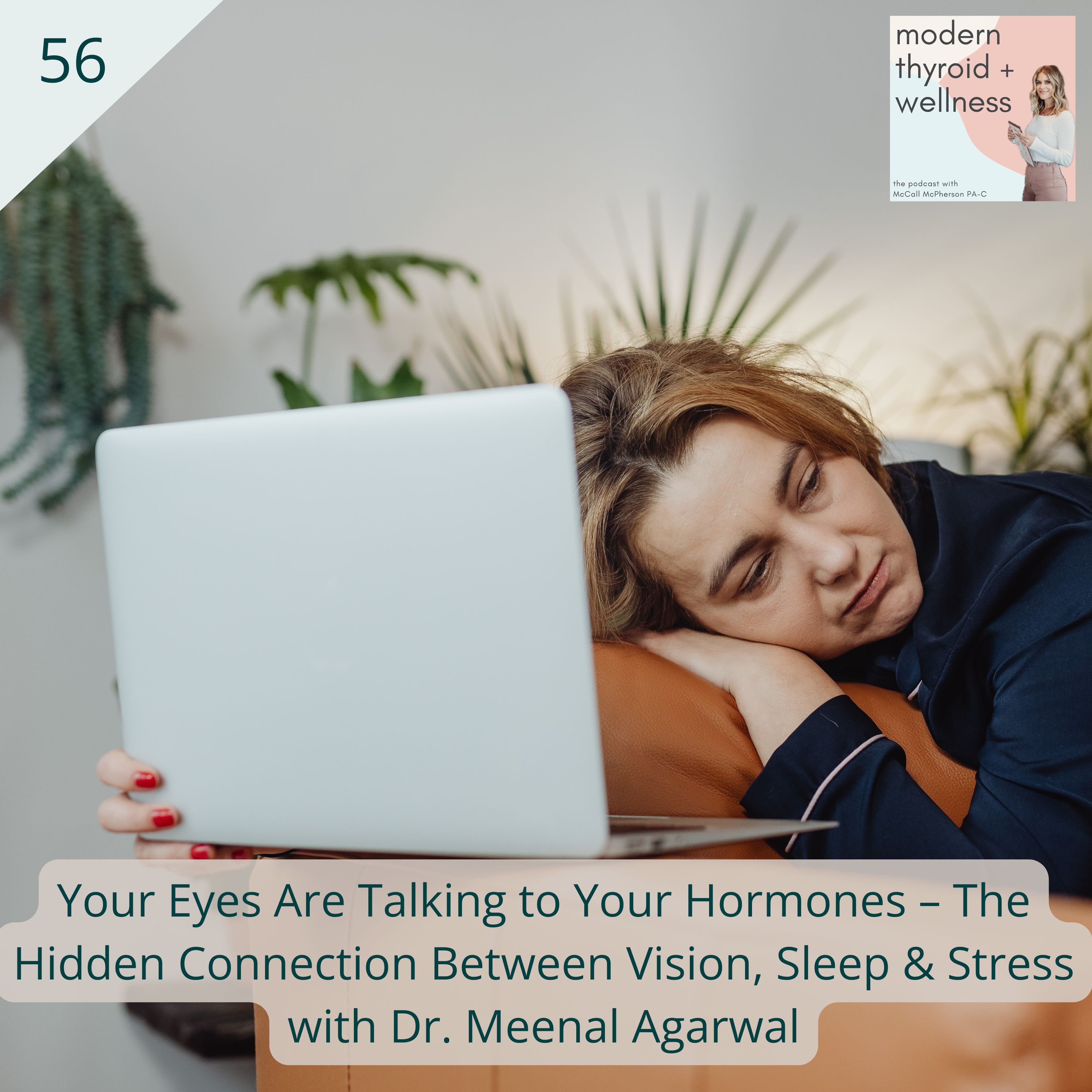

With Dr. Meenal Agarwal, Board-Certified Optometrist and Holistic Health Advocate
In an age of screen fatigue, digital overwhelm, and rising chronic stress, we often forget that our eyes are more than just tools for seeing — they’re direct pathways into the brain, nervous system, and even hormonal balance.
In a recent episode of the Modern Thyroid and Wellness Podcast, host McCall McPherson sat down with Dr. Meenal Agarwal, a board-certified optometrist with a unique perspective on integrative vision care. Dr. Agarwal shares why eye health is deeply connected to thyroid function, sleep, anxiety, menopause, and more — and how simple visual habits can transform overall well-being.
Dr. Agarwal reveals how conditions like thyroid dysfunction, menopause, and chronic stress often manifest first in the eyes — from dry eyes and light sensitivity to blurry vision and brain fog. Most people (and even doctors) don’t realize that vision problems can signal imbalances in estrogen, progesterone, or thyroid hormones.
Her approach blends neuroscience, mindfulness, and preventative care to help patients reconnect with their senses in a world dominated by digital screens.
“Your visual system is designed to scan the world, not stare at a screen. When we don’t use it the way it evolved, the whole body suffers,” says Dr. Agarwal.
If you’ve ever felt drained after a Zoom call or struggled to sleep after scrolling TikTok, your eyes — and brain — are giving you a warning.
Dr. Agarwal explains how blue light and prolonged screen time:
Every 20 minutes, look 20 feet away for at least 20 seconds.
It’s one of the easiest ways to prevent digital eye strain and retrain your brain to relax.
Our eyes regulate circadian rhythms, which control hormone production. When screen time extends into the evening, it confuses the brain into staying alert, instead of releasing calming, sleep-promoting hormones like melatonin and oxytocin.
Hormonal changes from menopause, perimenopause, and thyroid conditions can also reduce tear production and affect vision clarity. Dr. Agarwal emphasizes using morning sunlight exposure and limiting screen time after sunset to support hormone health naturally.
Too much screen use narrows your field of view — literally.
Dr. Agarwal describes how a shrinking peripheral vision leads to poor balance, dizziness, and even increased fall risk. Movement-based activities like walking, dance, or outdoor sports help stimulate visual-spatial awareness, crucial for healthy aging and cognitive resilience.
Dr. Agarwal shares some of her go-to strategies for maintaining visual and hormonal balance:
Dr. Meenal Agarwal is a board-certified optometrist and founder of Pickering Town Centre Optometric Clinic. Diagnosed with glaucoma at age 11, she turned her personal health journey into a mission to revolutionize how we think about vision. She combines cutting-edge science with holistic tools to treat patients experiencing digital eye strain, hormonal vision shifts, and neurological symptoms related to visual processing.
Follow her work and get practical tools for healthier eyes and better brain function.

